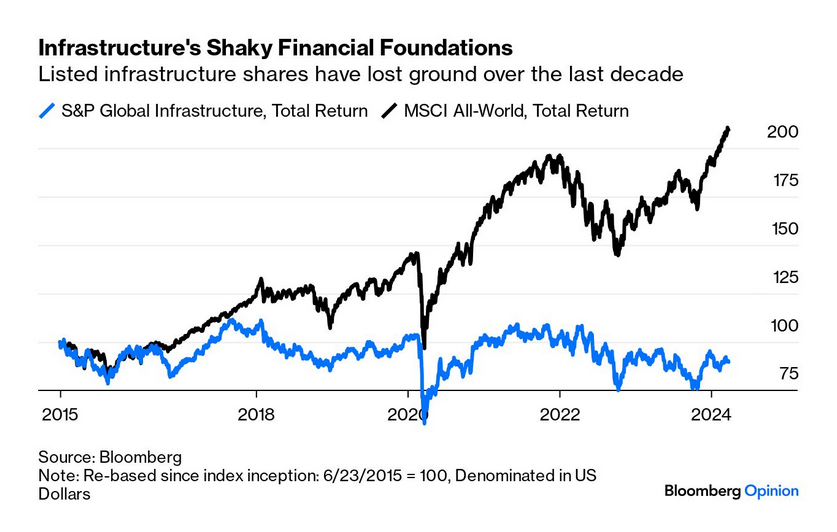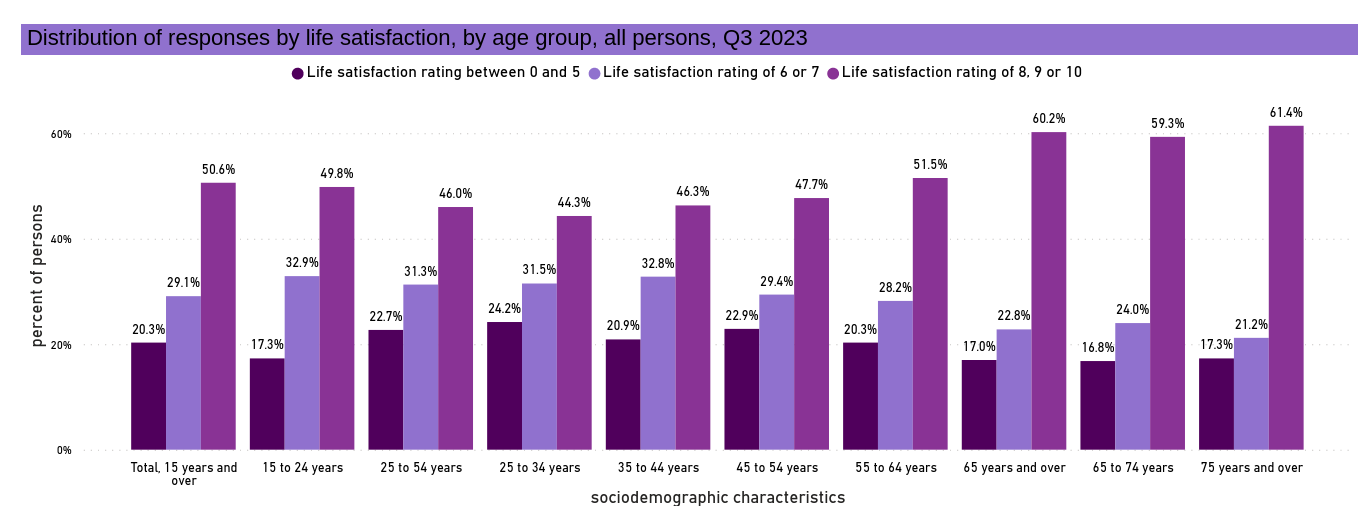March 27, 2024
Infrastructure
BlackRock has acquired Global Infrastructure Partners (owning Gatwick Airport) and now wants to talk about how to make infrastructure a better bet.
Here is the problem: it has not been such a great bet.

They want a piece of the more profitable public infrastructure. So, they are saying that the government needs to privatize the building and running of these large pieces of infrastructure (airports, ports, roads, bridges, utilities, communications, and everything else) so that they can make money help stop the government take on more debt.
Such altruism on display.
Of course, it could be the over $20tn of global infrastructure deficit we are facing in 2030—even excluding the massive green energy investment program.
Government debt or private debt, the cost of building infrastructure is the same, but the price we pay is much higher through the private route. Indeed, that higher price is what the private sector is all about.
Capital is already focused on the Balitmore incident as a reason for the government to let the private sector build things and upgrade infrastructure.
And, let's for a moment state the obvious, the pension fund investment policy debate is all about this because pension funds are capital with a different name. The debate about whether it is better to privatize your infrastructure to a pension fund or to capital should only be about the cost of that versus the cost of just building the infrastructure yourself.
Infrastructure has always been a rather difficult thing to finance. It is one of the reasons that it takes so long to build. When interest rates are high, it is even harder to raise funds to do large projects. And, projects are more expensive now even in real terms.
The procurement process and debate has been taken over by people who have little imagination when it comes to what "government" can do and too much imagination when it comes to solutions offered by the private sector. The result has been a slide into over complex financing arrangements that attempt to hide the profiteering from the public and projects that just do not meet the expectations given the price paid.
Are we satisfied with life satisfaction figures?
The global life satisfaction score, much like the student assessment scores for professors, is suspect as a metric of much beyond affinity to the word. But, that doesn't mean it cannot raise some questions.
Are we really satisfied with this kind of distribution? People do not seem satisfied with their lives under capitalism (the middle aged group who work). Perhaps we should look at solving that issue.
